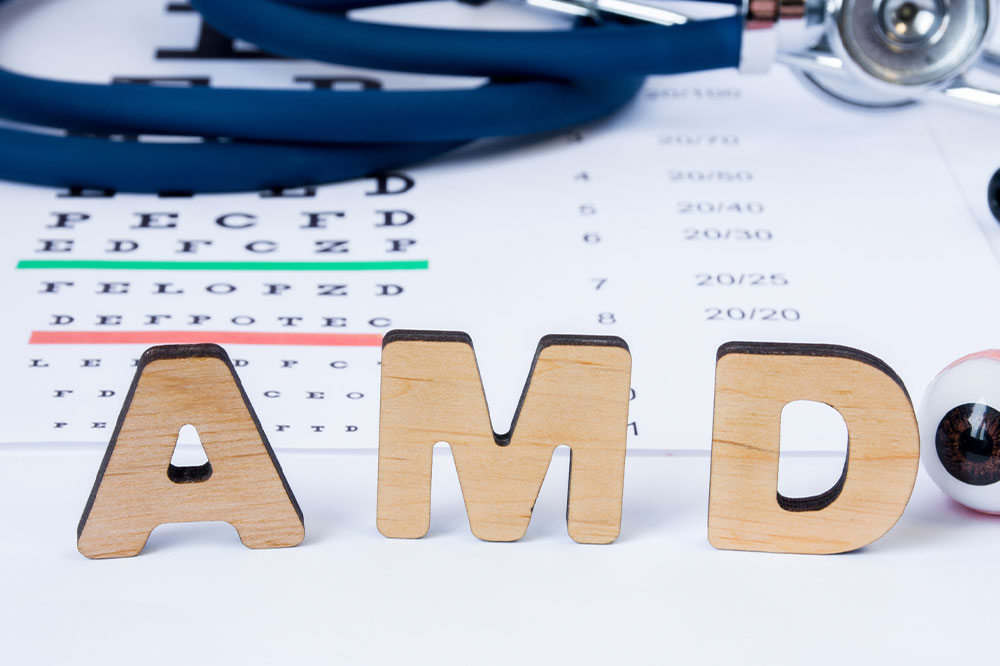Old age can lead to the development of various kinds of diseases, and age-related macular degeneration is one among them. This eye disease can occur in people above 50 years, leading to vision issues, especially the ability to look straight. There are multiple misconceptions associated with the problem that it causes complete blindness; however, the fact is only central vision is lost. Let’s have a look at the other myths associated with the condition.
Macular degeneration is not very common
Age-related macular degeneration is not a disease that is very rare and affects only a percentage of people. The disease is the most common reason that leads to loss of vision and is known to affect even people who are as young as 20 years old.
There are specifically two types of AMD which are dry and wet. Dry macular degeneration causes the cells present in the macula, the central part of the retina, to die, leading to blurry central vision. In the case of wet macular degeneration, the fluid present in the blood vessel exudes into the macula and leads to blind spots. The majority of cases are those of dry AMD, while wet AMD is taken as a more advanced form of the disease since it leads to swift and chronic damage to vision.
Macular degeneration symptoms are perceived prematurely
Age-related macular degeneration is not known in its early stages as there are no particular symptoms present, and there is no loss of vision. It is, therefore, important to get regular eye checkups done by an ophthalmologist. The vision of the eye which is getting affected might be reduced, but the eye which is fine will get to see things normally.
The most noticeable symptom in the case of a dry AMD is the blurring of vision. Advanced symptoms of the disease comprise problems in recognizing faces, reading, and more. The early symptoms of wet AMD comprise straight lines appearing crooked or loss of central vision, or both.
Macular degeneration causes complete blindness
Another myth related to age-related macular degeneration is that the disease can lead to complete blindness, but it is not as such, and the disease may contribute to vision loss. AMD is known to damage the macula, which is the focal part of the retina responsible for differentiating and focusing vision. This helps people in reading as well as recognizing faces. Even when AMD is in its worst stage, the peripheral vision remains functional.
Carrots can correct your vision
This myth holds no truth, as following a healthy and nutritious meal plan, including leafy greens and more, can aid in fulfilling the daily nutrient requirement of the body. Moreover, it can lower the risk of developing the disease, not correction of vision. Taking vitamin supplements can also not lead to vision correction.
Macular degeneration cannot be corrected
Loss of vision due to age-related macular degeneration is difficult to regain, but it can be controlled and slowed down with proper treatment. For treating dry AMD, multiple kinds of therapies are utilized, which comprise low vision rehabilitation that aids in adjusting defects of the vision. There are antioxidants also prescribed to cease the progression of the disease. Surgical implantation of the telescopic lens is even performed to expand the field of vision. Alternatively, for treating wet AMD, various kinds of injections, as well as therapeutics, are used to cease the progression and conserve existing vision. If the treatment begins early, it can even lead to the restoration of part of the lost vision. There are laser and photodynamic therapies also performed to treat wet AMD, wherein the light of the laser is used to lock the blood vessels in the macula to stop them from leaking. Even low vision rehabilitation is used to adjust deficits of vision, including blind spots.
Wet AMD gets passed on from previous generations
There is no distinct fact that people who have a family history of having the disease will develop AMD. However, there are several other factors that may contribute to getting the disease; these include aging, smoking, poor eating habits, high cholesterol level, high blood pressure, race, and more.
There is no definite way to cease AMD from getting worse
Age-related macular degeneration cannot be averted completely, but its advancement can be reduced with proper eating habits, a healthy lifestyle as well as treatment. Some of the ways to prevent its progression also include adding green leafy vegetables to daily meal plans along with fish, keeping a check on body weight, wearing sunglasses outdoors to prevent ultraviolet rays from affecting the eye, maintaining normal cholesterol and blood pressure level, and regular exercise.
Smoking has no link to vision
People who tend to smoke have a greater chance of having age-related macular degeneration disease. This is because the macula comprises delicate blood vessels that get damaged because of chemicals such as tar found in tobacco smoke.
People suffering from Wet AMD will gradually lose their ability to see
The myth used to be true during earlier times, but with advancements in technology, there are various treatment options that can stop the progression of the disease. However, it is important to act quickly as the wet form of the disease is known to progress speedily.
Reading in low light can lead to AMD
Age-related macular degeneration is not caused due to reading in low light. However, it is important to read or watch television in sufficient light so that an ideal balance of light is created between the object as well as the surrounding environment. Furthermore, reading in poor light conditions leads to strain in the eye and makes the overall experience tiresome.
Conclusion
The best way to detect vision issues such as age-related macular degeneration early is to go for regular eye checkups.



